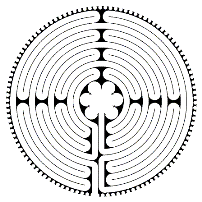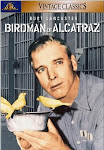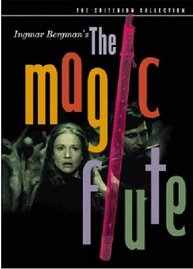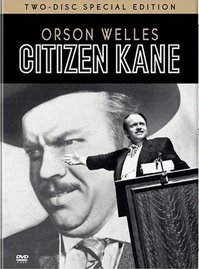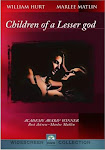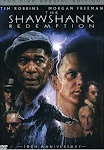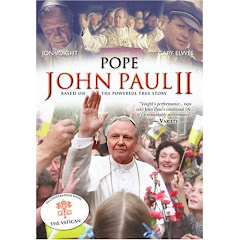One of my friends on LinkedIn asks as follows:
What is in it for the angels? What are the intangible assets that generate enthusiasm from an angel? What is the perfect situation from the angel's point of view ?
Not the angels dancing on the head of a pin, but the ones who put liquid energy at your disposal what do they want what is their ideal opportunity. Why do they do it?
I think I know what I want, but what the person(s) who might be my personal angel(s) wants has everything to do with whether or not I can be at ease with accepting their money. I need to know their motivation, just like they need to know mine. Obviously angels are seeking something beyond the tangible. I need to know what that something is. In all my business relationships I need to know: what does the other person want so I can decide whether I can provide what they want and if I am willing to do so.
Now I know she means “angel investors” and not angels, but I could not resist the opportunity to talk about the latter while others educate her about the former.
I first became interested in angels when I was reading How to Speak How to Listen by Mortimer Adler. In the Appendix of this book he presented the outline of a speech he made concerning computers and the efforts to achieve artificial intelligence. The comment I remember him making was that the effort was an attempt to re-invent angels.
Since that remark I have read widely on the subject of angels and recommend Adler’s second book entitled Angels and Us, as well as Peter Kreeft’s fine summary found in Angels and Demons What Do We Really Know About Them?
The most profound treatment of angels comes in a book entitled Pseudo Dionysius: The Complete Works (Classics of Western Spirituality). In it is a chapter on the "Celestial Hierarchy."
The most accessible book I’ve found on angles, though, is Jean Danielou’s The Angels and Their Mission.
For devils I recommend Malachi Martin’s Hostage to the Devil.
Having made these recommendations, I hasten to add Thomas Aquinas’ thoughts on angels. In Part One of Thomas Aquinas’ Summa Theologica, the “Angelic Doctor” presents the following questions and answers about angels, good and bad ones, linked below for your convenient reference.
As you might expect, my general advice to her concerning her questions is to deal with “angel investors” as you would other human beings, for humans, regardless of roles and masks, are still humans and not gods, angels, or devils. At the same time, given how I see decision-making working via the Decision-Maker's Path (tm) I describe in my blog entitled "Creative Decision-Making," the key is to see what has inspired the angel investors in the past. In my view, true inspiration does come from God via the better angels.
Please let me know if you agree. Enjoy the references.
Thanks.
John
Question 50. The substance of the angels absolutely considered
Is there any entirely spiritual creature, altogether incorporeal?
Supposing that an angel is such, is it composed of matter and form?
How many are there?
Their difference from each other
Their immortality or incorruptibility
Question 51. The angels in comparison with bodies
Do angels have bodies naturally united to them?
Do they assume bodies?
Do they exercise functions of life in the bodies assumed?
Question 52. The angels in relation to place
Is the angel in a place?
Can he be in several places at once?
Can several angels be in the same place?
Question 53. The local movement of the angels
Can an angel be moved locally?
In passing from place to place, does he pass through intervening space?
Is the angel's movement in time or instantaneous?
Question 54. The knowledge of the angels
Is the angel's understanding his substance?
Is his being his understanding?
Is his substance his power of intelligence?
Is there in the angels an active and a passive intellect?
Is there in them any other power of knowledge besides the intellect?
Question 55. The medium of the angelic knowledge
Do the angels know everything by their substance, or by some species?
If by species, is it by connatural species, or is it by such as they have derived from things?
Do the higher angels know by more universal species than the lower angels?
Question 56. The angel's knowledge of immaterial things
Does an angel know himself?
Does one angel know another?
Does the angel know God by his own natural principle?
Question 57. The angel's knowledge of material things
Do the angels know the natures of material things?
Do they know single things?
Do they know the future?
Do they know secret thoughts?
Do they know all mysteries of grace?
Question 58. The mode of angelic knowledge
Is the angel's intellect sometimes in potentiality, and sometimes in act?
Can the angel understand many things at the same time?
Is the angel's knowledge discursive?
Does he understand by composing and dividing?
Can there be error in the angel's intellect?
Can his knowledge be styled as morning and evening?
Are the morning and evening knowledge the same, or do they differ?
Question 59. The will of the angels
Is there will in the angels?
Is the will of the angel his nature, or his intellect?
Is there free-will in the angels?
Is there an irascible and a concupiscible appetite in them?
Question 60. The love or dilection of the angels
Is there natural love in the angels?
Is there in them love of choice?
Does the angel love himself with natural love or with love of choice?
Does one angel love another with natural love as he loves himself?
Does the angel love God more than self with natural love?
Question 61. The production of the angels in the order of natural being
Does the angel have a cause of his existence?
Has he existed from eternity?
Was he created before corporeal creatures?
Were the angels created in the empyrean heaven?
Question 62. The perfection of the angels in the order of grace and of glory
Were the angels created in beatitude?
Did they need grace in order to turn to God?
Were they created in grace?
Did they merit their beatitude?
Did they at once enter into beatitude after merit?
Did they receive grace and glory according to their natural capacities?
After entering glory, did their natural love and knowledge remain?
Could they have sinned afterwards?
After entering into glory, could they advance farther?
Question 63. The malice of the angels with regard to sin
Can there be evil of fault in the angels?
What kind of sins can be in them?
What did the angel seek in sinning?
Supposing that some became evil by a sin of their own choosing, are any of them naturally evil?
Supposing that it is not so, could any one of them become evil in the first instant of his creation by an act of his own will?
Supposing that he did not, was there any interval between his creation and fall?
Was the highest of them who fell, absolutely the highest among the angels?
Was the sin of the foremost angel the cause of the others sinning?
Did as many sin as remained steadfast?
Question 64. The punishment of the demons
Their darkness of intellect
Their obstinacy of will
Their grief
Their place of punishment
